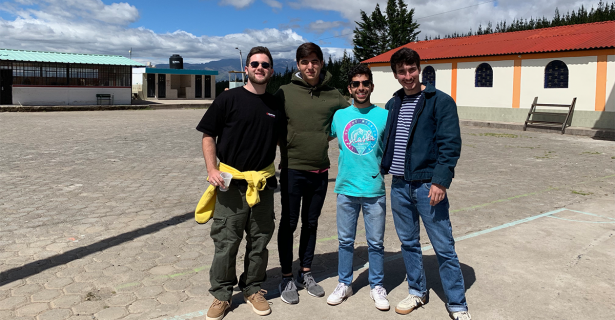On August 2019, I travelled to Ecuador with the Tufts International Development team to monitor our current digital library projects and expand into a new community using an improved technology.
In addition, we carried a new focus in mind: looking at the possibility of assisting students in remote schools as they navigate the higher education application process. For a while now, the team has been discussing a shift from educational technology for young teenagers to an area where our work could more concretely translate into sustained academic improvement. With this in mind, we took advantage of our on-the-ground exposure to gather information about the general application process, focusing on the communities’ interest as well as the feasibility of our assistance.
We learned from the students that although they are highly invested in their schoolwork, they do not know much about universities or career opportunities. Born and raised in remote communities, most of them have not yet travelled to the neighboring cities where the closest colleges are located. On the other hand, the teachers and school administrators pointed out that the uncertainty of moving into a new urban setting and the financial constraints associated with it tend to stop students from pursuing further education.
We also discussed the idea with Juan Merlo, a representative from the Quito-based NGO AVANTI with whom we have held a close relationship these past years. He noted that the problem at hand is too broadly defined and that we need to research about the resources already available to help students in remote communities achieve higher education. He also recommended to look at organizations that focus on college education in underserved communities in other Latin American countries and discuss the possibility of bringing their work to Ecuador.
I am looking forward to expanding our research and exploring potential partnerships with educational organizations working in Latin America. Once we narrow down the project scope and develop a concrete plan – perhaps bridging the knowledge gap between students and scholarship programs or connecting them with online university curricula – we can begin assisting the students in rural schools as they navigate their college application years.


